Unless you have significant termite damage, it can be hard to be positive that you’ve even got a problem at all. Often, there are no real signs of a termite infestation in the beginning.
But as the infestation continues, you may notice mud tunnels in your crawlspace or running along the outside of your home to the level of floors or walls.(1)
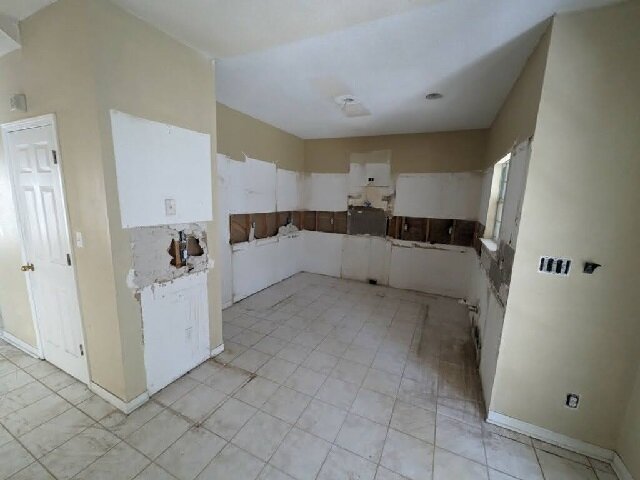
Selling a house that termites have damaged might be hard, but it’s not impossible.
Pensacola, FL, homeowners can get through this process if they know what to do and have the right tactics.
How to Understand Termite Damage
What does termite damage look like?
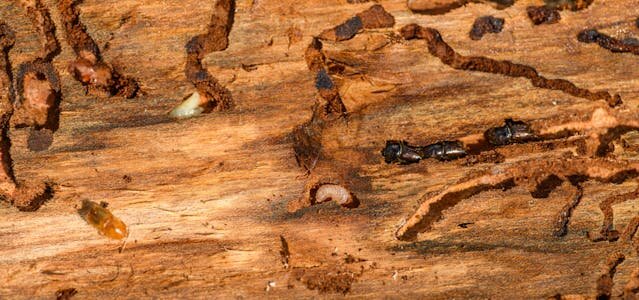
Termites damage a house when they eat wood, weakening the structure.
This could make the foundation and the house less strong altogether. Termite damage usually shows up as wood that sounds hollow, mud tubes on walls, and wings that have been thrown away.
Different Kinds of Termites in Pensacola, FL
Because it is warm and wet in Pensacola and many other parts of Florida, termites like to live there, this area has the following types of termites most often:
1.Subterranean Termites: These termites live underground and make mud tubes to reach food sources. They do the most damage in the U.S.
2. Drywood Termites: These termites don’t need to be in touch with soil like subterranean termites do. They like to live near the coast and eat dry wood.
3. Formosan: Termites are a type of subterranean termite that is very damaging and aggressive. You can often find them in Florida.
Assessing the Extent of Termite Damage
Knowing how bad the termite damage is is important before you put your Florida cash home buyers on the market. It needs to be carefully examined and judged.
Conduct a Professional Inspection
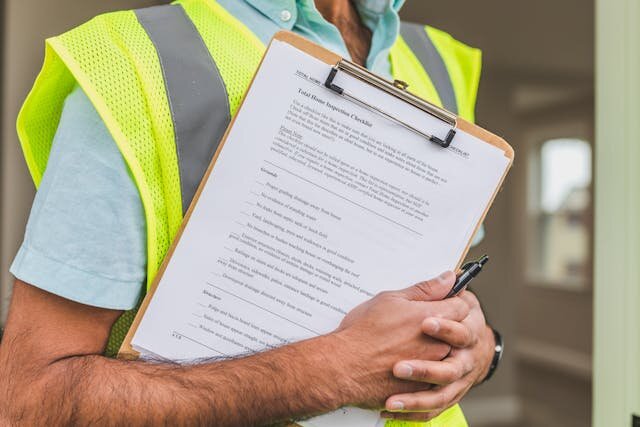
Get a licensed pest control expert to look over your home.
They will give you a thorough report on how bad the damage is and suggest treatments.
A professional review is essential for honesty and trustworthiness when selling your home.
Evaluate Structural Damage
If the termite damage is severe, you might want to hire a structural engineer to examine it and determine how it affects the house’s structure.
This inspection will help you determine whether the house needs major repairs before you put it on the market.
Deciding Whether to Repair the Damage
Once you know how bad it is, you’ll have to decide whether to fix the damage caused by the termites or sell the house as-is. Each choice has pros and cons.
Repairing the Damage
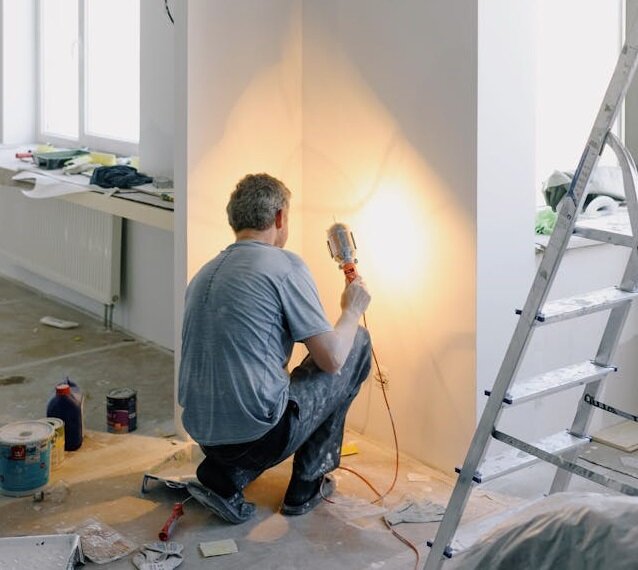
Pros:
1. Increased Market Value: Making the proper fixes can raise the property’s value, which could help you sell it for more than if you hadn’t fixed it.
2. Get More Buyers: A house with apparent termite damage might turn away buyers.
Getting the damage fixed can make the home more appealing to a broader range of buyers.
3. Faster Sale: Homes in good shape sell more quickly.
Taking care of termite damage can help you avoid long market times and make your home less likely to stay on the market without being sold.
4. Better Position for Negotiation: Buyers could use damage from termites as a negotiation chip to lower the price of the house.
Fixing the damage first can avoid these kinds of talks and keep you closer to your asking price.
5. Reduced Inspection Issues: Making repairs ahead of time can prevent problems during the home inspection, which could cause issues that end the deal or require a new one.
6. Improved Curb Appeal: Termite damage isn’t just to the structure; it can also change how the house looks.
Fixing it can make the house look better overall, making it more appealing to people who might want to buy it.
7. Legal and moral concerns: Some areas have laws that require sellers to tell cash home buyers in Florida about known pest problems. Fixing the damage can avoid legal problems and show that you are morally responsible.
Cons:
It can be hard to decide whether to fix up a house that termites have damaged to sell it. Here are some terrible things to think about:
1. Cost of Repairs: Fixing damage caused by termites can cost much money. This means taking care of any problems that are going on and fixing the damage that can be seen.
The cost might be higher than the possible rise in the sale price.
2. Uncertain Return on Investment: There’s no promise that the money spent on repairs will lead to a sale price increase in the same amount.
Buyers might still be wary of the house because of its past.
3. Time and Effort: Fixing damage caused by termites takes time and work. If you want to sell quickly, the repairs might make the sale take longer than planned or make your schedule more difficult.
4. Disclosure Issues: You’ll have to discuss past termite problems even after the fixes.
Some buyers may still be worried about issues that might happen in the future or damage that could be more obvious.
5. Possibility of Hidden Damage: Termite damage can be extensive and complex to evaluate thoroughly.
Some damage may be more evident at first and only show up after fixes, which will cost more.
6. Market Perception: In some areas, homes that have had termite damage in the past may not be seen as highly, even if the damage has been fixed.
This might change how people who want to buy your house think about its value.
7. Competitive Disadvantage: Even if you fix up your home, it might not be as appealing to buyers as other homes in the area that are in better shape or haven’t had these problems.
Selling As Is
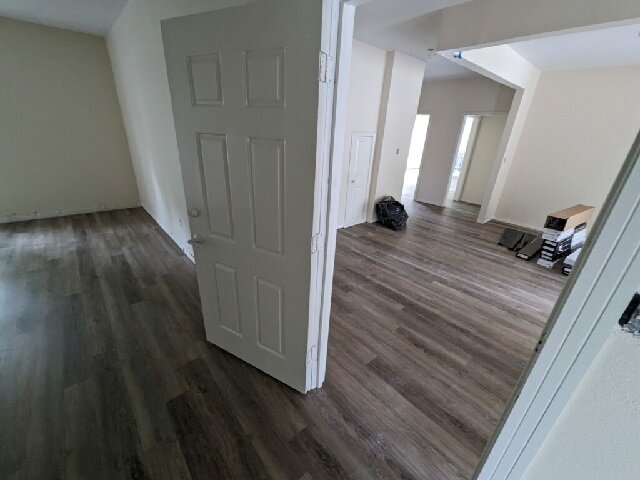
Pros:
Some good things about selling a house “as-is,” even if it has termite damage. Here are some important pros:
1. Faster Sale: Selling the house “as-is” can often speed up the selling process.
People who are interested in these kinds of homes usually want to buy them quickly and are ready to make the repairs themselves.
2. Least Hassle: You don’t have to deal with the time, work, and stress of fixing termite harm. This can be especially appealing if you can’t handle or keep an eye on fixes.
3. Lower costs: Fixing damage caused by termites can cost a lot of money.
If you sell the house as-is, you won’t have to pay for things like pest control, structure repairs, or minor cosmetic changes, which can add up to a lot of money.
4. Getting Investors: Investors and Florida cash home buyers reviews often look for properties with problems like termite damage because they want to fix them up or buy troubled properties at a lower price.
These buyers might be interested in buying as-is.
5. Avoiding Problems: If you try to fix something and the buyer isn’t happy with it, it could cause problems or delay the sale.
Selling as-is can avoid these problems.
6. Market realistically: Even if you price the house competitively, you might still get reasonable offers.
The buyers might be willing to put up with the damage from the termites in exchange for a lower price.
7. Disclosure Benefits: Selling the item as-is may lower the chance of future disputes over unreported problems.
People who are interested in buying the property usually know that it is being sold as-is.
8. Easier Agreements: Since you’re not fixing anything or making any changes, agreements may be easier to understand.
Buyers know from the start that the home they are interested in has problems.
Cons:
Many people are tempted to sell their house “as-is,” especially if it has damage from termites. There are, however, a few cons to think about:
1. Reduced Sale Price: People who want to buy a house with significant problems, like termite damage, usually expect a discount.
When you sell, you might get less money than if you fixed it up first.
2. Limited Buyer Pool: Termite damage may turn off some buyers, lowering the pool of people buying the house.
Investors and people who pay cash might be interested but give less.
3. Perception of Neglect: An “as-is” sale can sometimes make it seem like the house has been ignored or is in bad shape in other ways besides the termite damage, which could make buyers even less interested.
4. Difficulty Financing: Many mortgage lenders want homes to be in a particular state before they will give money to them.
Termite damage can make it harder or even impossible to get financing, which could make it take longer to close the deal.
5. Disclosure Issues: You must tell people about known problems even if you plan to sell the house “as is.”
If termite damage is found later, it could cause legal issues or disagreements.
6. Negotiation Leverage: cash buyers in Florida could use the “as-is” state as a bargaining chip, which could lower the price even further or make the deal more difficult.
7. Potential for Additional Costs: If you sell the house “as is,” you won’t have to pay for any repairs, but you may still have to pay for inspections, appraisals, or other parts of the sale process that are more difficult if there are damage problems.
8. Longer Time on Market: Homes with major problems may take longer to sell because it takes longer to find the right buyer.
Preparing Your House for Sale
Getting your house ready to sell is essential, whether you fix the damage caused by the termites or sell it as-is.

Disclose the Termite Damage
Being honest is very important when selling a house that has termite damage.
Florida law says sellers must tell buyers about any problems they know about with the property, like damage and termite outbreaks.
Not giving this information can cause issues with the law in the future.
Obtain Documentation
Get all the paperwork related to the termite damage, such as repair receipts, inspection reports, and treatment records.
These steps will give potential buyers faith in your efforts to fix the problem.
Set a Competitive Price
It can be difficult to price a house that has been damaged by termites.
Talk to a real estate agent about how to put a fair price for the property that considers its health.
If you’re selling the house as-is, you should lower the cost to attract investment or cash buyers.
Marketing Your House
You need to market your house well to attract buyers, especially if it has termite damage.

Highlight Positive Features
It’s essential to show that your home has termite damage, but it’s also important to highlight its positive aspects.
Focus on things that make the property more valuable, like its location, size, structure, and recent improvements.
Target the Right Buyers
Pay attention to buyers more likely to be interested in a house that termites have damaged. Some of these are:
- Investors or people who can pay cash can buy the property without needing a debt, which speeds up and simplifies the process.
- Investors buy houses to fix them and then sell them for a profit.
- Fixer-upper enthusiasts are buyers who like to work on home improvements and see what your home could become.
Use Online Listings
Use websites for real estate to reach a large audience.
Include high-quality pictures and a complete description of the house, stating any damage caused by termites and any repairs you’ve made.
Host Open Houses
Open houses can attract many potential Florida cash buyers at once.
You should make sure your home looks nice and clean and be ready to discuss the termite damage and what you’ve done to fix it.
Negotiating with Buyers
Be ready to bargain when offers start to come in. To help you get through this, here are some tips:

Be Flexible
Know that buyers may ask for discounts because of the termite damage.
Be willing to talk about the price or offer to pay for some repairs.
Provide Estimates for Repairs
Give possible buyers an idea of how much repairs will cost if you sell the house as-is.
This can help them determine how much work needs to be done and make an informed choice.
Consider All Offers
Carefully consider all offers, even those from businesses and people who want to buy with cash.
Although these deals may involve less money, the closing process is usually faster, and there are fewer conditions.
Closing the Sale
The closing process starts as soon as you accept an offer. What you can expect:

Home Inspection
The buyer may do their home inspection. Prepare for this and bring all the necessary paperwork about the termite damage and any fixes.
Appraisal
If the buyer is obtaining a mortgage, the lender will need an appraisal.
The appraiser will determine the house’s worth by examining the damage from the termites and any necessary fixes.
Final Negotiations
There may be final talks after the check and evaluation.
The buyer may ask for more fixes or a price change based on what was found.
Be ready to talk things out and find an answer that works for everyone.
Closing Costs
Know how much it will cost to close the deal.
Some examples are title insurance, escrow fees, and any fixed costs still owed.
Talk to your lawyer and real estate agent about these costs so you can plan for them.
Working with a Cash Buyer in Pensacola, FL
If you want to sell your house fast, working with a cash buyer is one of the best ways. Florida cash home buyers can speed up the process and offer several advantages, including:
Benefits of Selling to a Cash Buyer
- Quick Sale: People who pay cash can close the deal faster than others, usually in a few weeks.
- No Financing Contingencies: People who pay cash don’t need a mortgage, so there is no chance that the deal will fall through because of financing problems.
- As-Is Sales: Many people ready to pay cash will buy homes as-is, so you don’t have to pay to fix them.
Finding a Reputable Cash Buyer
If you want to find a trustworthy cash buyer in Pensacola, FL:
- Research online: look for cash buyers with good reviews and feedback.
- Ask friends, family, or real estate agents for suggestions on how to find an excellent real estate agent.
- Check Credentials: Make sure the We Buy Houses Pensacola has a license and a history of smooth deals.
Conclusion
It can be hard to sell a Pensacola, FL, home that termites have damaged, but it is possible if you know what you’re doing.
You can get the right buyers and make a successful sale if you know how bad the damage is, decide whether to fix it up or sell it as-is, get your house ready to sell, and market it well.
Getting cash from a reputable buyer can make the process even more accessible and help you close the deal faster.
You can turn this problem into a chance and move forward confidently if you are honest and use the right strategies.

